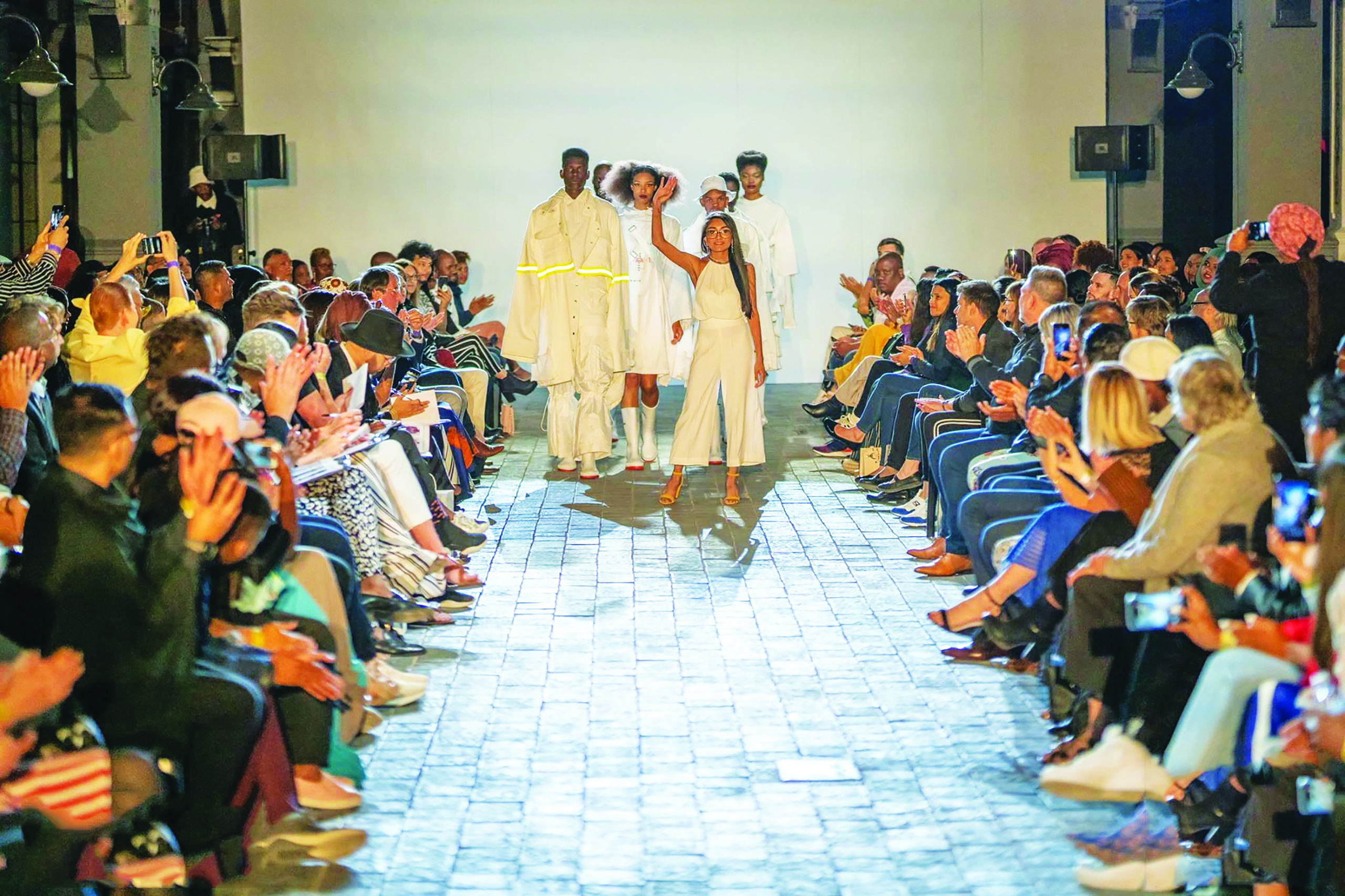Anjali Borkhataria is trying to change the narrative of fashion in Tanzania with a local brand aimed at everyone.
BY INAARA GANGJI
IT WAS ONE OF THOSE RARE OCCASIONS when bold neon colors, oversized white outdoor workwear and bright uncoordinated prints made their way on to the ramps of the annual Swahili Fashion Week in Tanzania. Local fashion designer, Anjali Borkhataria’s brand, EK AN TIK, its name inspired by Hindu scriptures, was a breath of fresh air in an industry that has been assumed to be set in its ways.
“I believe African fashion is not limited to the printed patterns or kitenge, but we have so much to work with… there can definitely be more diverse design, but still have that African signature,” says Borkhataria to FORBES AFRICA. Borkhataria won Innovative Designer of the Year at this year’s fashion week and her brand has been worn by celebrities across the region and the African continent including Kenyan musician Tanasha Donna, Tanzanian celebrity Romy Jons and singer Mbosso, and has also appeared in a music video by popular Tanzanian singer Diamond Platnumz, featuring Congolese singer Koffi Olomide.
But Borkhataria believes her brand is not made only for celebrities. Her first collection is workwear inspired by regular businessmen, electricians, and construction industry workers. It’s also unisex, oversized, and flowing. And while she does not prefer comparing herself to other designers in the region because creativity is not a competition for her, she believes her designs inspired by local street culture set her apart.
Loading...

“Because, life happens on the streets, the streets influence me more than anything. So, I try to imply that into my design,” says the 23-year-old who has been a designer for the last three years. However, despite having studied at the Cape Town College of Fashion Design in South Africa, when it comes to the creative process, she does not believe in doing things in one way or the other.
Her second collection showcased at the latest edition of the Swahili Fashion Week was inspired by games. Titled ‘GameScape’, the inspiration for it came from her father, who sells cars, batteries, and tires. It was also inspired by the Covid-19 pandemic as everybody sat at home and played games. “I don’t know what my creative process looks like because sometimes it’s a movie, sometimes it’s a piece of art, sometimes it’s nothing,” she exudes.
The tight timeframes involved in creating collections hinder the creative process too, with usually only five weeks between conception and production. She is not a fan of sketching either, as she goes with flow, not following a typical or organized process. This saves her time and sets realistic expectations, in her opinion.
Borkhataria also does all her production in-house and on her own. And she hopes that the independent career path she has taken by returning home to Tanzania from South Africa, inspires other young people in her country, no matter their background, to also be able to pursue fashion if they are so keen.
She also credits her success to her supportive parents. All of this may make it seem like fashion is fun, and it is for her, but the industry is not free of challenges, she opines. She thinks brands create so many collections every year, but there aren’t enough people who can afford to wear them. “So, I wish fashion would go back a little bit. Today, everybody thinks that they know what fashion is, but they don’t know the main essence. For instance, I like music, but it’s not like I’m going to actually make it. So, I don’t like it when people buy a dress from H&M for cheap and they think, ‘I know what fashion is’… I definitely want to change that,” she adds.
This is the reason why she wants high-quality local brands to reach the most people and hopes to have a local store of her own, as she currently works and sells from home. With all these aspirations, and while being a young, South Asian-origin female designer, doing everything on her own is not easy, she is humbled and inspired by being able to create fashion at home in Tanzania.
“It is challenging but like in one way, it has made me very open minded. Because we are surrounded with mixed backgrounds… I think that has made me very open to different types of people. It just signifies there is hope,” she says, with faith in her craft and optimism for the world.
Loading...
